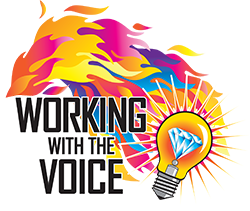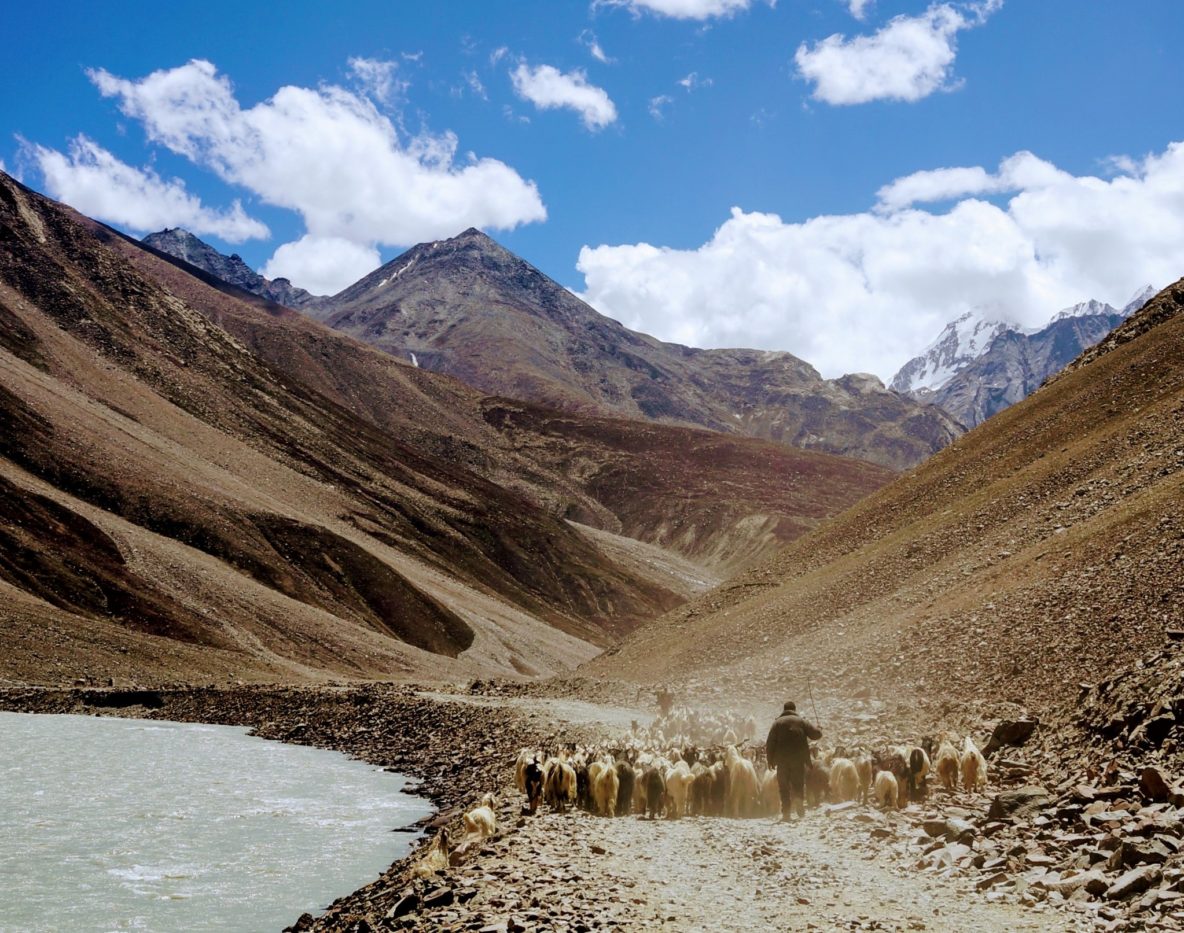In years past, as Christians in America, the Easter weekend would often kick off on Friday by wrapping up some light business and then heading home early. Saturday would be a light day spent hanging out with the family, engaging in a ball game or some other fun outdoors. Then Sunday, we would celebrate with our own community at the Easter Sunday service where our pastor would tell us the story that would guide us collectively from the crushing despair of Jesus’ physical death to the fulfillment of the promise of new life that his resurrection brought to the world. There would be a bigger than usual check dropped in the collection plate to express our gratitude for the previous good we have been shown and also in anticipation of the future good that will inevitably come.
But this will not be happening the same way this weekend. This Saturday, if we awaken to our circumstances, we can understand the day that Jesus’ disciples lived through on the original Easter weekend. We can experience the true meaning of walking through the Valley of the Shadow of Death and on Sunday, wake up to the promises we can be sure will be fulfilled by God in the future.
Understanding this specific Holy Saturday has the ability to lead you to a transformation so that you are in a distinctly different place after the stay at home orders are lifted.
Traditionally, in our culture the focus during what is called the Holy Week is on two specific days, Good Friday and Easter Sunday. These days are sacred to Christians and commemorate the day of Jesus’ crucifixion and the day of his resurrection. Rarely is the importance of Holy Saturday, or as it is also called, the Great Sabbath in reference to the Jewish Passover, emphasized. It is usually used as a day of rest and enjoyment, but rarely a time to touch on the mystery related to important and mystical questions: “Where am I in relation to Jesus? Am I part of death or am I part of the transformation of the life to come? Will I be like Judas or Peter?”
We can learn a tremendous amount by thinking about the apostles, Jesus’ closest disciples, and their lives on that historic day, the first Holy Saturday. Each and every one of them had to have been blindsided by the events from the previous day. Everything they had devoted their lives to looked like a disaster. Jesus was crucified as a criminal and buried in a tomb, guarded by soldiers. The apostles had worked together for years now and were friends, even with Judas. They would have grieved the fact that Judas killed himself after he realized what he had done to Jesus. His death is a major historical event, but very little mention is ever made of the grief that his friends and family would have felt. Not one person that had spent time in Jesus’ movement really knew what was going to happen to them or the movement on that Saturday. Although Jesus told them repeatedly that he would be betrayed, killed and then would rise again, the banter that is recorded as occurring around the table at the Last Supper leads us to believe that they didn’t think he meant those things literally. If they did, why wouldn’t they have stopped Judas from leaving? Why would they have spoken about who would be the greatest in the future?
On this Sabbath, they realize that at least part of what Jesus said would happen is true, he was killed. The blow of that event most likely left them in a fog, without anything to hold onto. Any person who has experienced the death of an important person in their lives knows there is a unique and inexplicable feeling right afterwards that life is not as it was, should be, or ever will be again. They might have been realizing that Jesus said he would rise again and live, but on this day they must have also seen the chances of that happening to be very low. Even the women who surrounded Jesus were prepared to embalm him as soon as the Sabbath was over and the light of the next day came. The stark reality seems to be that their beliefs are foolish, and now they are in danger of persecution that could rise to the level of causing their deaths.
Although we should have all seen something like this pandemic coming, most of us didn’t. For over 50 years scientists have been telling Americans that they cannot continue living the way we have been living or continue to do the things we have been doing without dooming humanity. People reacted differently to the information, like normal, on a spectrum with people in total denial on one end and on the other end, people thinking they could get to Mars or at least far enough off the grid to not be affected. This is the first time in our lives that throughout the world, people soberly understand that leaders may manipulate us, economies may be prioritized above lives, but nature will have its way with us. Somehow we have all had a part in this. The apex of the coronavirus’s sweep through our country is predicted to occur soon, and the irony is that Holy Week will be the most crucial week for Americans in the fight against Covid 19. NYC is predicted to have the highest death count on Holy Saturday, and then if we are lucky, afterward the numbers there and in the rest of the country will begin to fall. If not, may God help us all. We have been blindsided by the pandemic in ways that can be compared to the apostle’s questions after the crucifixion of Jesus. Will our communities live or will they die? Is everything we have devoted ourselves to at stake? What is our personal place in this circumstance? This weekend we will walk through the valley of the shadow of death described in the 23rd Psalm.
Psalm 23
The LORD Is My Shepherd
The Lord is my shepherd; I shall not want. He makes me lie down in green pastures: he leads me beside the still waters. He restores my soul: he leads me in the paths of righteousness for his name’s sake. Yea, though I walk through the valley of the shadow of death, I will fear no evil: for you are with me; your rod and your staff they comfort me. You prepare a table before me in the presence of my enemies: you anoint my head with oil; my cup runs over. Surely goodness and mercy will follow me all the days of my life: and I will dwell in the house of the Lord forever.
Although this Psalm existed 1000 years prior to the birth of Jesus, these verses point to the example of Jesus who always referred to himself as a shepherd to his flock of believers. We are the sheep and we have a good shepherd who provides everything for us that we require, including rest and protection. We walk together as a flock, and we are individually given care. Our cup runs over, we have more than enough to share.
Contemplating death is supposed to change the way you view life, yours and the lives of others. For Christians, Holy Saturday is the representation of the most significant valley, the lowest point of our walk, the one that we must go on in faith, based on the promises Jesus gave us. This weekend for many people, there will be an experience of actual death around them or the contemplation of that possibility. Who can know what will happen in the future? The 23rd Psalm gives a simple and profound explanation of what we can count on if we place ourselves under the care of God. We can safely walk in the dark valley between the mountain of what has happened on one side and on the other side, the mountain of what will come. We can be at peace knowing that He has promised to give us life if we can sustain the transformation of that walk, keep going and not lose our faith.
During the Last Supper, some very important things occurred. Here is the basic story: All twelve apostles were eating with Jesus and he has identified that one of them will betray him. It is said that evil entered Judas and he left to tell the Roman soldiers where Jesus would most likely be after dinner, praying in the garden. Jesus shared bread and wine with the other eleven apostles and blesses them. Today, bread and wine are symbols of the New Covenant, the new vow from God that would be a testament to Jesus’ followers. For it to be a true covenant would require that Jesus’ blood be shed, and for it to be a testament that is in effect, he would have to die. (A testament is a will and even today, a will has no effect until the person dies.) He tells the apostles that where he is going they can’t go, and that as part of the New Covenant, he is giving them his new commandment. In a covenant, a contract, each person has requirements for performance. He says, “Love one another. As I have loved you, so you must love one another. By this everyone will know that you are my disciples, if you love one another.” When Peter asks Jesus why he can’t go with him, because he would lay his life down for Jesus, Jesus tells Peter that he doesn’t know himself well. He predicts that before the rooster crowed in the morning, Peter would deny that he even knew Jesus three times. Skipping forward in the story, Jesus is betrayed by Judas, the guards arrest him, Peter follows him and Jesus hears Peter deny knowing him for the third time. A rooster crows, and Jesus looks straight at Peter. Peter weeps in bitter repentance of his cowardice and disloyalty. Judas repents of his betrayal of Jesus and tries to undo it by throwing the 30 pieces of silver back to the priests. Judas is unsuccessful in stopping the effect of his betrayal and kills himself in response to his repentance. Jesus is crucified.
Digging even deeper requires an understanding of vows. A vow is a deeply sincere promise that we make using words, and God takes vows seriously. Vows that aren’t kept are considered to be punishable offenses, and there is a commandment against a specific type of vow, taking the Lord’s name in vain. That’s like saying “I swear on the bible” or “I swear to God”. There have to be rules for humans that take vows and fail to honor them because we are morally imperfect beings who can lie or not perform. It is different with the vows that God makes to us. He never breaks them. It is impossible for him to lie. God is a perfect being, the only one, and specifically, he is morally perfect. The importance of Jesus’ life is that we receive new promises from God, better promises than before. However we are required to perform in the specific way Jesus instructs at the Last Supper. He says, “Love one another. As I have loved you, so you must love one another. By this everyone will know that you are my disciples, if you love one another.” That is the Christian’s Vow, the vow that is our responsibility to pursue if we expect to receive the New Covenant blessings from God. But how can we ever receive these blessings when we are imperfect and don’t always love our neighbors in the way we should? The answer is that when we find ourselves falling short, we must repent, and if we do, we will not have to pay the price. We will be forgiven.
The term “repentance” means feeling regret or remorse about something we have done. Often, people feel that repentance is taking a blow to one’s ego, a validation that they are a horrible person who has done horrible things. But that isn’t correct. The concept of repentance in the bible is the Greek word metanoia. Metanoia and the word metamorphosis have the same root. Metamorphosis occurs when one form of life is changed into another form of life, like a caterpillar into a butterfly. Jesus taught that repentance was metanoia, a remorse that could lead to the transformation of a person, where a new creature was created. He also taught that people who were incapable of repentance were incapable of transformation. Judas repented and did not follow Jesus. His transformation was to death. Peter repented, and there is a continuation of the story that will show us that his transformation was to being a new creature in pursuit of life.
After Jesus has been resurrected, there is a specific time recounted in the last book of John where some of the apostles go with Peter to fish. He had resumed his occupation of being a fisherman. They hadn’t been able to catch any fish, and Jesus was on the shore calling to them but they didn’t realize it was him. He tells them to cast their nets to the right side of the boat, and when they pulled the nets up there were more fish than they could haul in. Peter then realizes it is Jesus on the shore and joyously goes to meet him. They all eat together, and after eating, Jesus asks Peter three times in a row if he loves him. Each time, Peter answers that of course he does and Jesus instructs him three times that if that is so, then Peter is to feed Jesus’ sheep. This is the count for count correction that transforms Peter, 3 denials, 3 opportunities to show loyalty and receive new directions. Jesus had acknowledged Peter’s third denial of him with just a look, and Peter had truly repented, metanoia, the repentance that leads to transformation. Repentance isn’t the end of it. The transformation occurs when Jesus has allowed the realizations of repentance to work on us a bit. This time of transformation is the valley of the shadow of death. Have we made it through or did we quit? He will then come back to us to see if we are ready for our new positions. Peter was transformed from being a fisherman that day to being a shepherd of the early Christian church. What he did with his life would change the world.
So on this Holy Saturday, as we walk through the valley of the shadow of death, you have an opportunity to rethink your Christian vow. How will this walk change you? Have you been following Jesus like you said you would, and been loving your neighbor as yourself? We were warned that we needed to change the way we were living and treat others and the planet better. If it hadn’t been the coronavirus, it would have most likely been something else just as dramatic. In this world wide community response to the coronavirus, we have seen the best of people and the worst of people. How have you been acting, if you call yourself a Christian, especially when Jesus hasn’t just given you a big haul in your bank account or business? If you haven’t been doing enough to love your neighbor, then change your ways and trust the process. Repent in a way that leads to transformation, and then allow the transformation to occur. Follow the good shepherd through the valley. He promised to take care of us and bring us out the other side, to life, with enough to share. And his promise is good.
Download The Full TranscriptI look forward to hearing from you!

Photo by Daniel Burka on Unsplash









